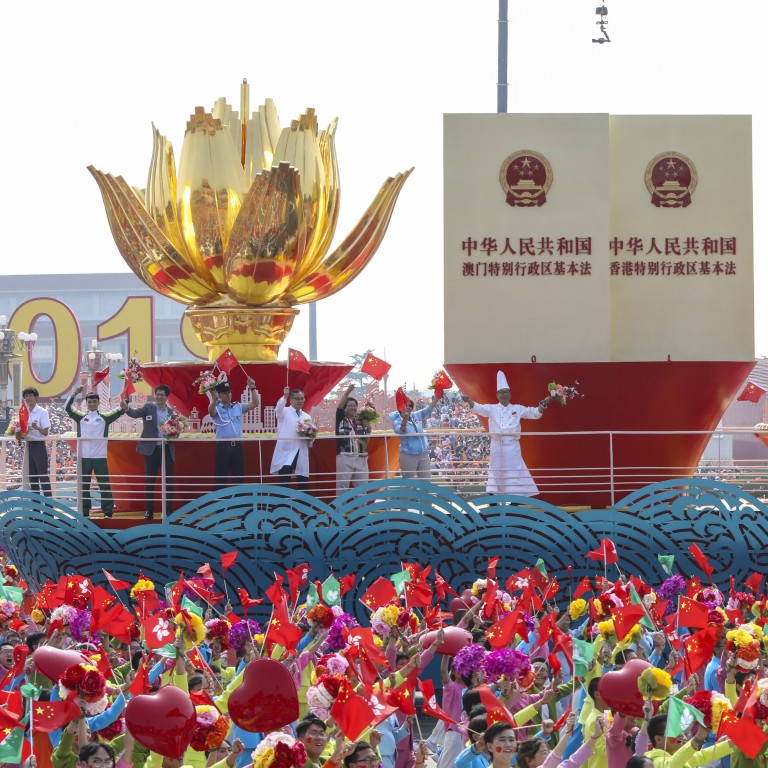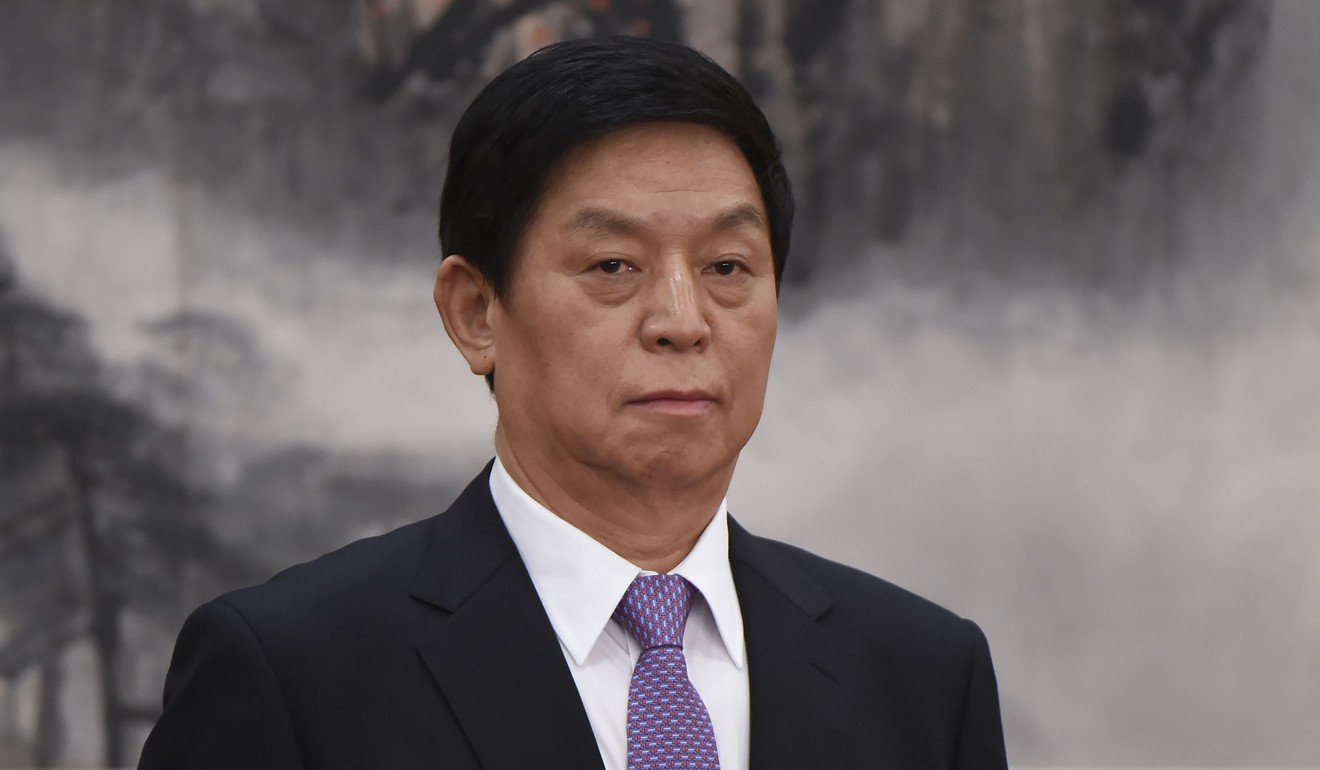
Beijing’s signal to Hong Kong: learn from Macau, and it starts with having ‘patriots’ in charge
- Top official praises Macau for implementing ‘one country, two systems’ principle
- Hong Kong must have right leaders and introduce national security law, analysts say
Beijing expects Hong Kong to do more to emulate Macau even as it accepts that not every lesson from the former Portuguese colony can work in the city, analysts said on Tuesday.
They were commenting on remarks by National People’s Congress chairman Li Zhanshu who earlier in the day had described Macau as a role model for implementing the “one country, two systems” principle that also applies in Hong Kong.
Analysts said the signal from Beijing was that while the central government appreciated the differences between the two cities given their separate colonial pasts, it expected both to put that guiding principle into practice.
The lessons for Hong Kong from Macau, they said, included ensuring the right people were in charge and implementing a national security law which Beijing considers critical.
Speaking at an event in Beijing on Tuesday to mark the 20th anniversary of Macau’s Basic Law, Li urged Hong Kong to be more like Macau, and stressed that the two special administrative regions’ legal and constitutional systems could not be treated outside China’s national constitution.
He heaped praise on Macau for having the social foundation for implementing the Basic Law, and having “patriots” in key government posts.

Li, who is head of China’s legislature, urged Macau’s civil servants to strengthen their understanding of China’s constitution, adding that this should be part of their performance appraisal and recruitment.
He said Hong Kong also needed to heed central government’s policies, the constitution, and the central government’s comprehensive jurisdiction over the two cities which enjoy a high degree of autonomy.
“The central government has the same demands for both Hong Kong and Macau,” he said.
Macau introduced its own national security law 10 years ago to implement Article 23 of its Basic Law and set up a national security commission last year.
The Hong Kong government, on the other hand, backed down from putting Article 23 of the city’s Basic Law in place after 500,000 people took to the streets to protest against it on July 1, 2003.
Some mainland Chinese scholars said Li’s comments showed that the central government was aware of the differences between Macau and Hong Kong and would not apply the same standards to both.
Li Xiaobing, an expert on Beijing’s policies on Hong Kong at Nankai University in Tianjin, said Hong Kong could borrow its neighbour’s approaches in putting the “one country, two systems” principle into practice and fulfil its obligations.

He said Beijing used the same benchmarks to measure success in implementing the “one country, two systems” principle in both cities, but added: “The governance of the two special administrative regions naturally will have different forms, like the continental law adopted in Macau and the common law system in Hong Kong, or their institutional arrangements.
“We should promote both their successful experiences to each other, as well as learn the lessons from each other’s problems.”
Li Xiaobing, who attended the Beijing event where Li Zhanshu spoke, agreed that the Hong Kong government needed to strengthen its selection of principal officials.
Li Zhanshu said having patriots in key government positions has been instrumental in Macau’s success in implementing the “one country, two systems” principle.
Li Xiaobing said there was a pressing need for Hong Kong to fulfil its duty to enact national security legislation, but it should first identify the stumbling blocks and work out solutions.
Gu Su, a political scientist at Nanjing University, said Li Zhanshu’s remarks showed that while Beijing was determined to keep Hong Kong and Macau under its full control, it would allow them to be different from mainland China.

“Things can be done through legislation and strengthening the police force’s management of public order,” he said. “But in the administration of justice, Hong Kong has a strongly independent judiciary and if you meddle with it, there will be fierce opposition.”
Lau Siu-kai, vice-chairman of the semi-official think tank The Chinese Association of Hong Kong and Macau Studies, said Li Zhanshu’s speech indicated the central government’s intention of using Macau as the model of successful implementation of the “one country, two systems” principle, particularly in safeguarding national security.
“The central government sees Macau’s achievements as a yardstick to measure the performance of the leaders of Hong Kong’s government,” Lau said.
Lau said many Hongkongers, including some legal sector elite, had an incorrect understanding of China’s constitution and even rejected the central government’s authority in the relationship between Beijing and Hong Kong.
“Some Hong Kong people in the civil service and legal sector had colluded with external forces in the recent political turmoil,” Lau said, referring to nearly six months of anti-government protests but without elaborating.
“I think the central government will exercise its power in future to rectify such phenomena.”
In October, the Hong Kong government invoked the colonial-era Emergency Regulations Ordinance to introduce a ban on the use of masks, in an effort to quell the increasingly violent protests.
Two weeks ago, the city’s High Court declared the anti-mask law unconstitutional, a decision that drew strong criticism from the Legislative Affairs Commission of the National People’s Congress Stand Committee.
The commission declared that whether a local law was in conformity with the Basic Law could only be decided by the Standing Committee.
The Hong Kong government is appealing against the High Court decision.



